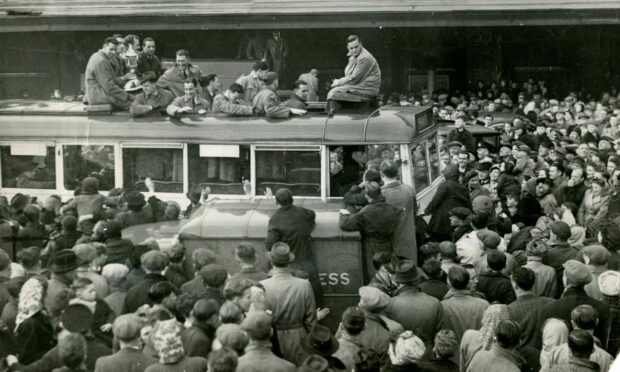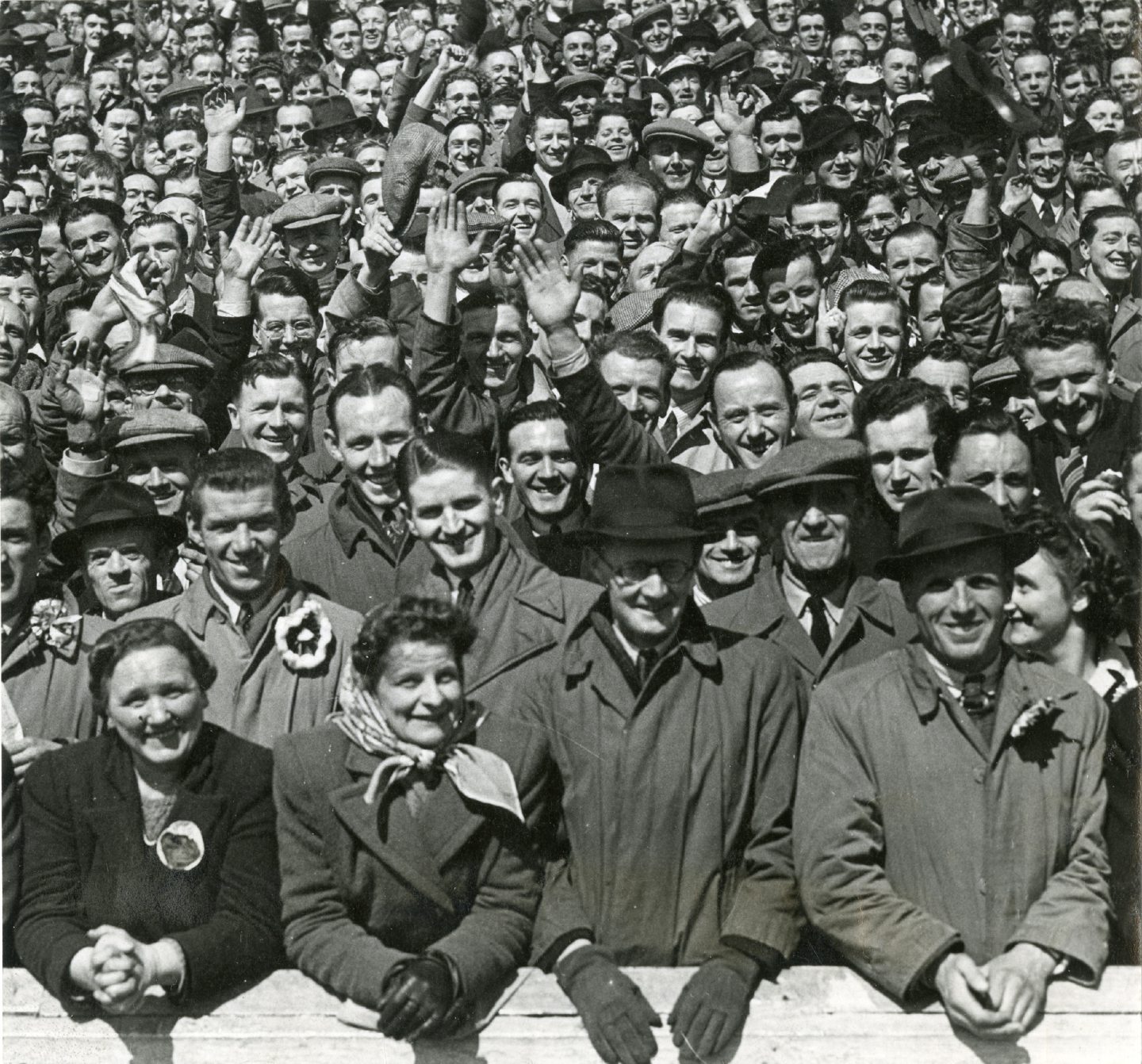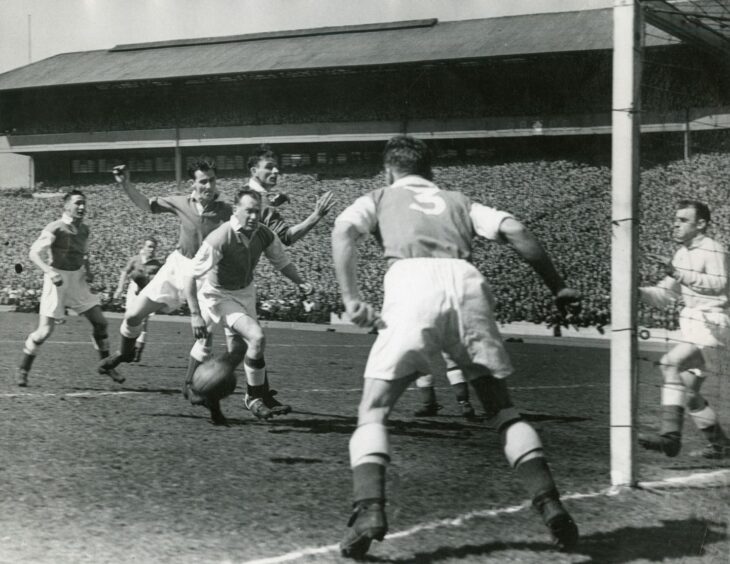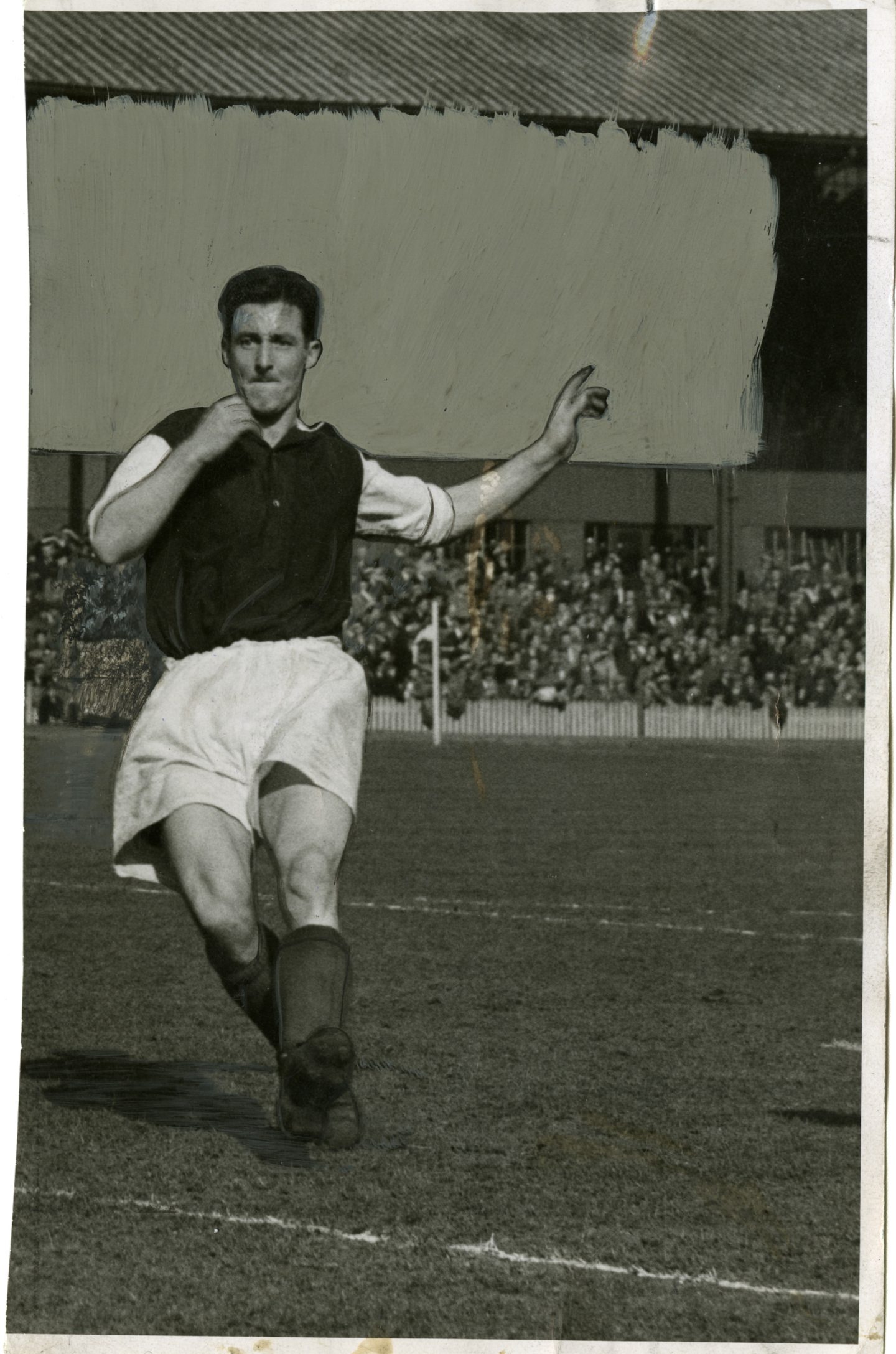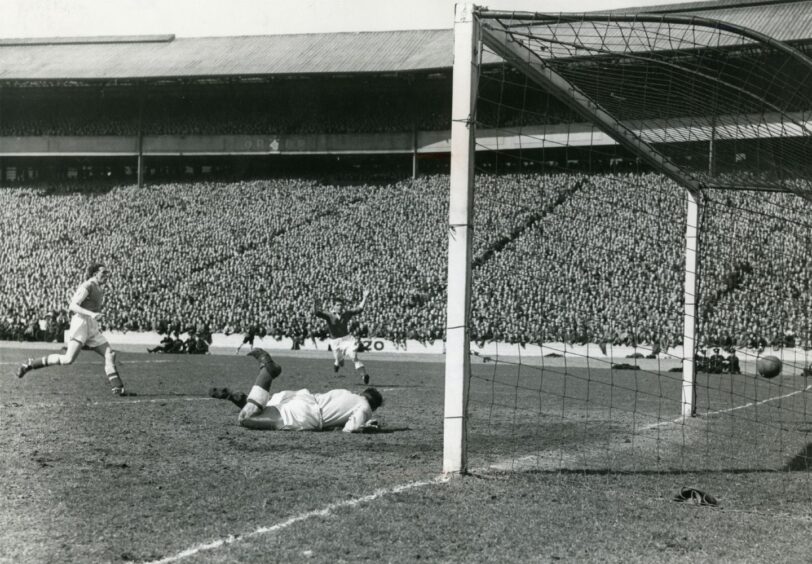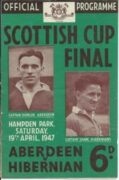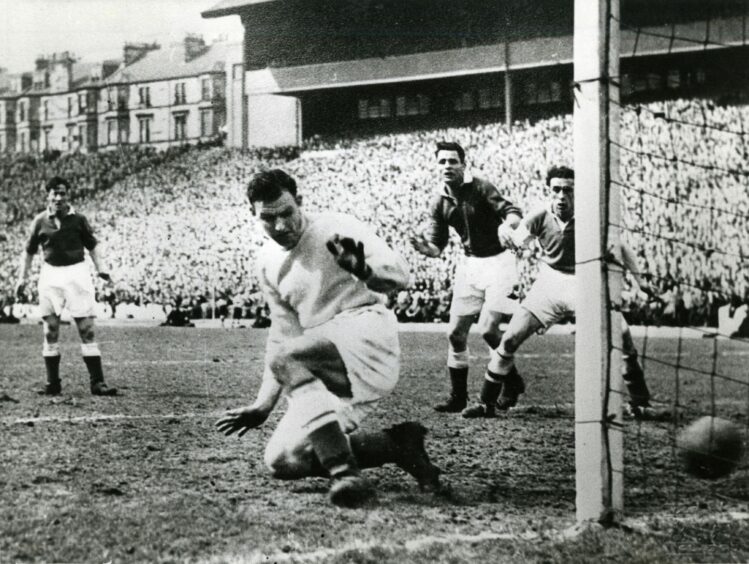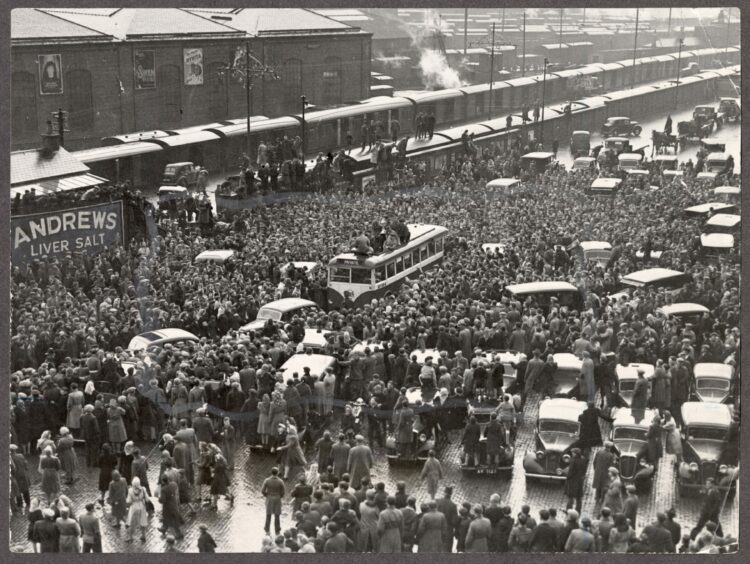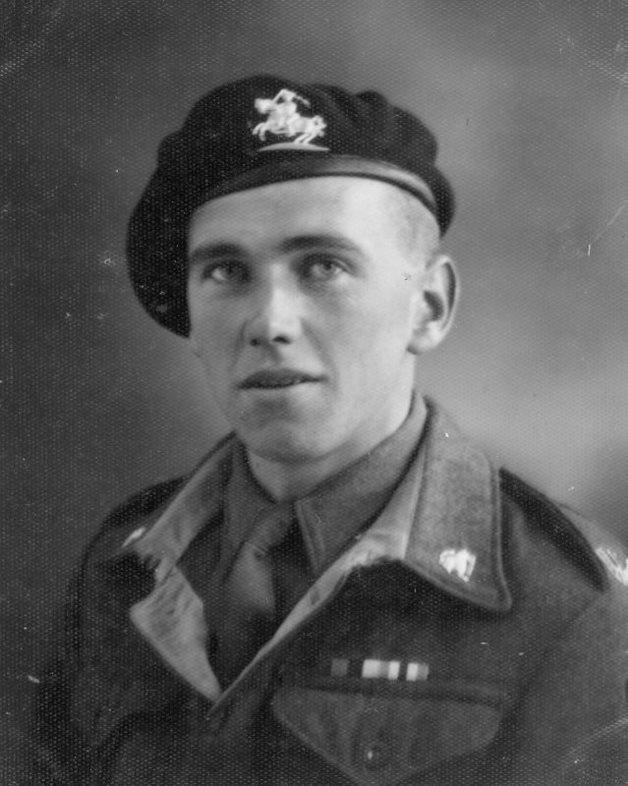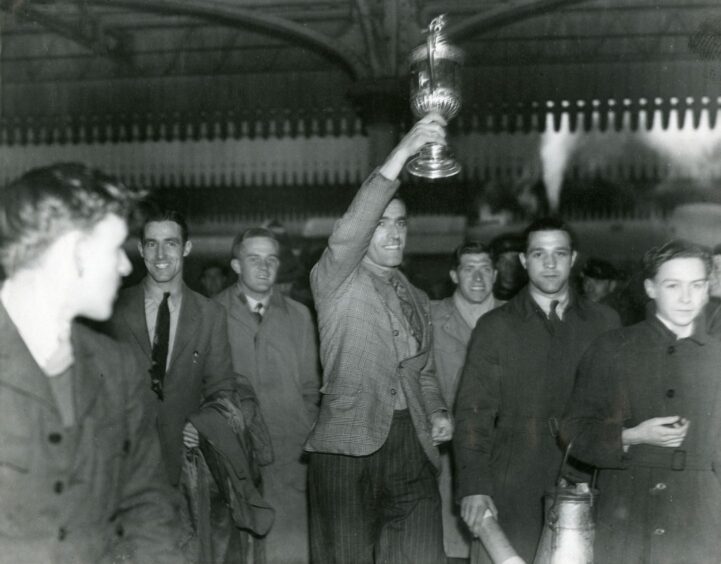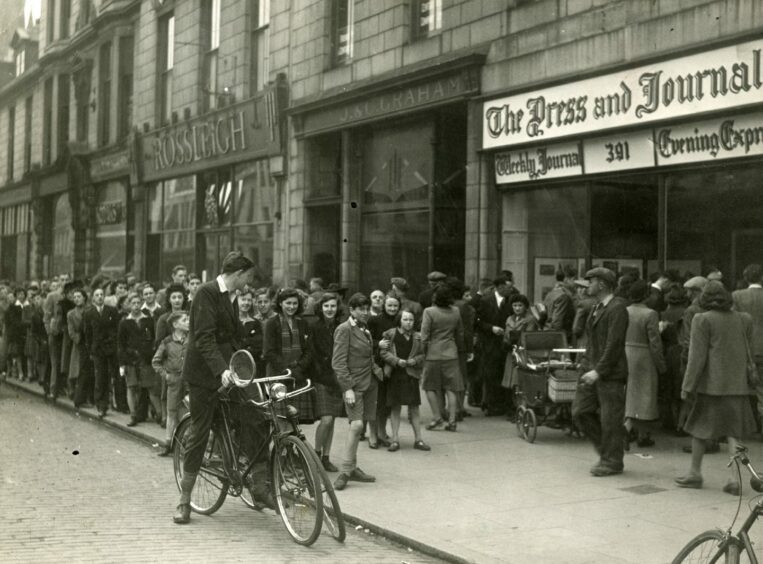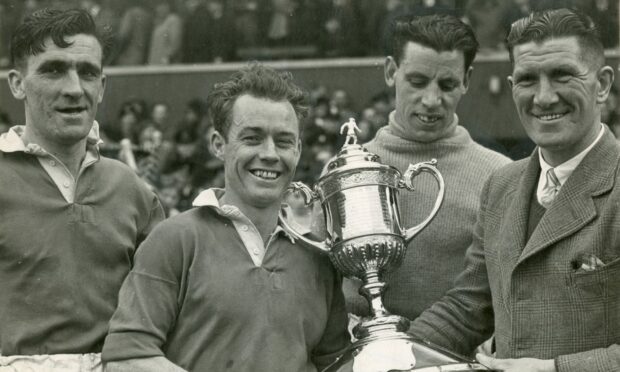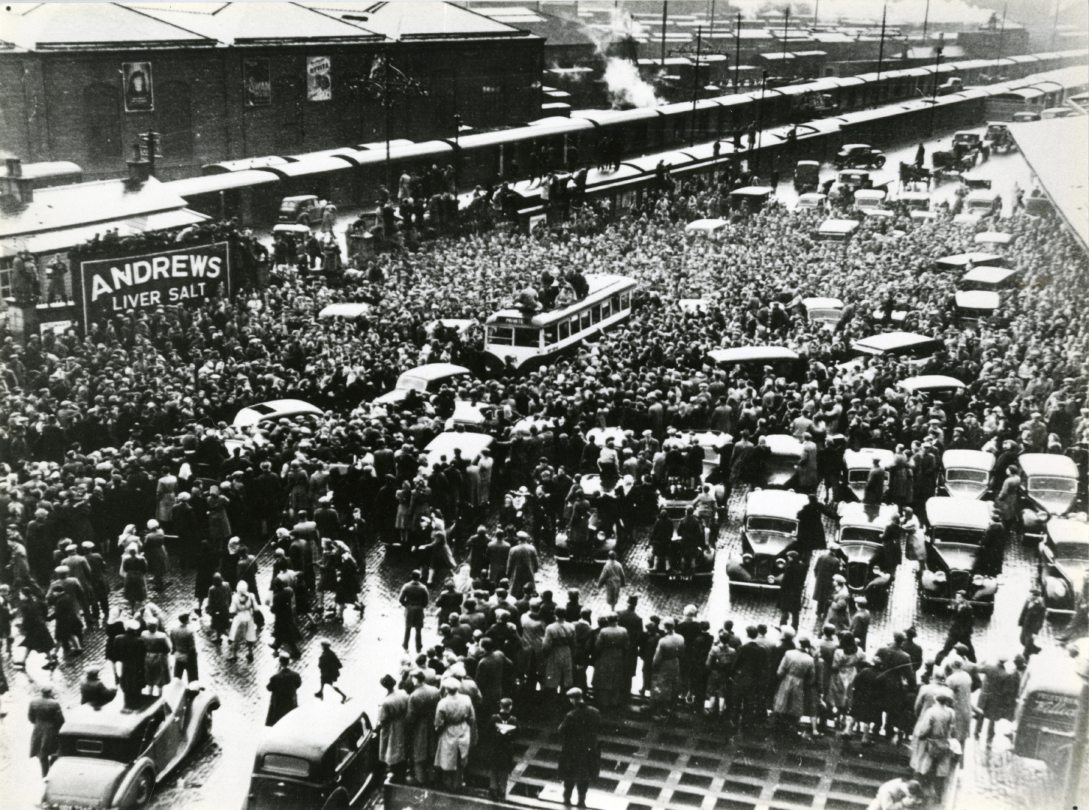Willie Cooper was one of the men from the old school of football: if you dished it out, you had to be able to take it, no questions asked.
But, as one of the Aberdeen players cruelly stuck on the sidelines during their maiden Scottish Cup triumph on a lustrous day at Hampden Park in April 1947, Cooper’s afternoon epitomised the wave of emotion that reverberated across the old stadium at the climax of an unforgettable afternoon.
At 36 years old, the “auld yin” had pulled a muscle during the semi-final against Arbroath, which was played just a week before the final.
After 21 years of service to the Dons, it was a bitter blow that threatened to bring down the curtain on his career without anything to show for his unstinting dedication.
But then, amid the scenes of celebration which followed Aberdeen’s 2-1 victory over Hibs, the chant swelled up from the fans with red rosettes: “We want Cooper, we want Cooper”.
The din continued until he was coaxed on to the pitch and received a thunderous ovation as captain Frank Dunlop handed him the trophy and allowed him to lift it to the heavens.
Dreams are made of these memories and Cooper later recalled: “It had been my day of greatest disappointment, yet when I heard the shouts from the crowd, it also became my greatest day.
“I tell you this, I was nearly greetin'”
He certainly wasn’t alone, but there again, the circumstances on that special Saturday would have brought a tear to a glass eye.
Football had been one of the few positive features of that long winter for the Pittodrie faithful, as their heroes transcended the months of blizzards and freezing temperatures to move closer to their ambition of hoisting the cup.
They had already disposed of Partick Thistle (2-1), Ayr United (8-0), Morton (1-2, in a replay), Dundee (1-2) and Arbroath (2-0) before they and thousands of the Red Army travelled to Glasgow for the final on April 19 1947.
That happy Halliday feeling
But Hibs had knocked out Rangers in the third round of the competition and were fancied by many observers to secure a prize that had long eluded them.
It promised to be a titanic struggle but the Dons, under their astute manager Dave Halliday, were becoming a serious force in the Scottish game.
Now, all they needed to do was demonstrate they had the right stuff when it mattered.
And they responded by falling a goal behind after, oh, about 30 seconds.
The Evening Express immediately described the incident as a “tragedy” and a “disaster” for the Dons, but there was also an element of farce about it when George Taylor passed the ball back to goalkeeper George Johnstone, another veteran who had appeared in Aberdeen’s only previous final 10 years earlier.
It should have been easy for him to collect, yet even as many fans were taking their seats, it slipped through his hands and legs and offered the simplest of opportunities for Hibs’ John Cuthbertson to accept the gift with pleasure.
If I missed, the fans would quite rightly ask what on earth I was doing. But I just remember clearing my head and saying to myself: ‘Here goes!’
Stan Williams
It was a shocking start, and the vast Pittodrie congregation briefly fell silent, but they rallied when they spotted Cooper vociferously screaming his support.
There was still nearly the full 90 minutes to retrieve the situation, but their opponents seized the initiative in the early stages, spurred on by their wonderfully talented “Famous Five” member – and future Aberdeen manager – Eddie Turnbull, who orchestrated panic on several occasions.
Aberdeen, though, were a redoubtable bunch, accustomed to dealing with adversity and they gradually gained a foothold.
Their gaffer Halliday was a phlegmatic soul, not given to rage or rampant outbursts, and his team rallied accordingly, and weathered the storm before striking back.
The equaliser arrived in the 36th minute when the elusive Tony Harris started a clever move, fed on to Stan Williams, and the latter side-flicked the ball into the path of George Hamilton, as the prelude to the chap nicknamed “Hammy” bringing home the bacon with a slick header past the despairing Jimmy Kerr.
If they had been content with gaining parity, they could have gone in at the interval and re-focused on the best way to win the cup.
But not a word of it.
Instead, they all realised the best way to win the cup was to knock the stuffing out of Hibs by grabbing a second goal and, as they roared forward, they did it.
The coup de grace was applied in the 42nd minute by the ubiquitous Williams and it’s a measure of the stunning quality of his finish that it was described as “impossible” in some quarters in the aftermath.
He told the Press & Journal: “After George’s goal, Tony Harris hit the ball downfield, but it was too fast and seemed to be going for a goal-kick.
“However, I chased after it in case there was a chance and managed to catch it, just before it went over the line to the right of the Hibs goal.
“As I cut along the line, everybody expected me to cross to either Archie Baird or George Hamilton, who both seemed to be better placed than me.
“One of them was shouting for it. I can’t remember who. But suddenly I spotted a small space between Jimmy Kerr in the Hibs goal and the near post.
“There was no time for careful aiming and absolutely no margin for error.
“If I missed, the fans would quite rightly ask what on earth I was doing. But I just remember clearing my head and saying to myself: ‘Here goes!’
He was standing on the edge of a windfall or a catastrophe. But, thankfully, for Williams and his club, the ball soared into the net and around half of the Hampden crowd of more than 82,000 supporters went utterly nuts and launched into the sort of ferocious chanting which raised the roof.
Kerr, in contrast, couldn’t believe what had just happened.
The newspaper photographs depicted him with a look of jaw-dropping incredulity on his face.
He probably woke up with the same expression the following morning.
It wasn’t even half-time but the game was up for the Easter Road contingent.
Huff and puff as they might, that goal in a million had deflated them and Hamilton could even afford to miss a penalty in the second period – after Kerr brought down Williams, no doubt fearing another burst of Paul Daniels magic – without it affecting the Dons or impinging on the party atmosphere.
Jack Webster, the official Dons biographer, captured the moment perfectly when referee Bobby Calder – later a chief scout at Pittodrie – blew his whistle for the last time and signalled that Aberdeen were victorious.
He wrote: “At 4.45pm on Saturday April 19 1947, the Rt Hon Joseph Westwood, His Majesty’s Secretary of State for Scotland, crossed the hallowed turf of Hampden and handed the trophy to Frank Dunlop, centre-half and captain of the first Aberdeen team to win the Scottish Cup.
“The presentation took place where presentations should always take place – out on the field, in full view of all those who have come to see the match.
“Back in 1947, when the unruly would not have dared interfere with the rights of the majority, it was the privilege of all to share in the joyous moment.
“And so it was that glorious April day, which is written in large red letters across the history of the Dons, amid the scenes of jubilation.”
It was then that the throng struck up their chorus in homage to Cooper.
And such was the influence that these evocative scenes had on everybody present that, despite there being no gongs for a non-participant in these days, the SFA allowed Aberdeen to strike a special medal for a special man.
The carnival was only beginning. And it lasted for the next 48 hours.
As you might anticipate, the headlines in the P&J of Monday April 21 were ebullient and ecstatic. “What a Victory, What a Team” and “Victory was Thoroughly Deserved” were only matched by the paeans of praise to Williams for his “outrageous”, “audacious” and “cleverly impudent” goal.
Writer Norman Macdonald raved: “We saw the devastating Aberdeen team. Half-backs and forwards swooped into the attack. Nothing could stop them.
“The ball travelled from man to man with speed and precision. Shots rained in on Kerr from all angles. No defence could cope against such an offensive.
“It was not Hibs’ day. They struck an Aberdeen football typhoon in the first 45 minutes and never recovered. They lacked leadership. But for the brilliance of Kerr, the margin of the Dons’ success would have been much more emphatic.”
Not even torrential rain could deter tens of thousands of fans from showing their appreciation for the players when they arrived at Aberdeen Railway station on Monday afternoon.
The crowd waited patiently in the forecourt – then, when they spied Halliday and Dunlop, they burst into a spontaneous round of applause and a rendition of The Northern Lights of Old Aberdeen.
The open-top bus made its way slowly along Guild Street, Regent Quay, Marischal Street and Union Street to the Caledonian Hotel, where the players were entertained to an early-evening dinner as the hordes stood outside.
Visibly moved by the reception, Dunlop said: “The boys could travel far and wide and still not find a club like Aberdeen.
“Personally, I consider it a very great honour to be a member of this club. This is my proudest day.”
The Dons may have grown used to such celebrations during the Alex Ferguson years at Pittodrie.
But, considering they had been in existence for 44 years and won very little, it’s hardly surprising the city went slightly crazy.
This was uncharted territory, the beginning of a new dawn for the Dons, with Halliday leading them to the Scottish championship in 1955.
But it all started with that sublime goal from Williams, the memory of which put a spring in the step of the Red Army for many a day.
